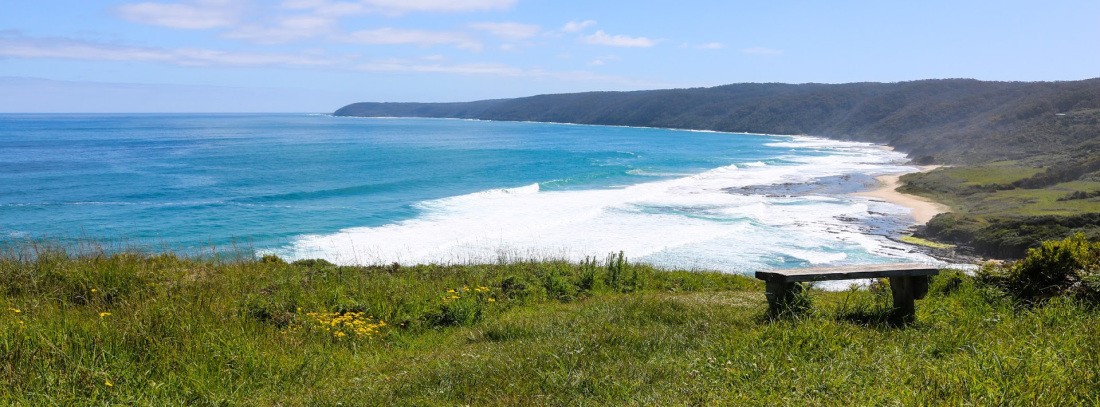 An Emmanuel Macron presidency would not represent quite the political earthquake of a Marine Le Pen presidency, but in some respects it would nonetheless take France’s political system into uncharted territory. Macron’s En Marche! movement currently has no MPs and, even if it performs well at the parliamentary election in June, it is highly unlikely to win a majority. Andrew Knapp explains what this could mean for a Macron presidency, suggesting that the most likely possibility is the formation of a minority government relying on different majorities on different issues.
An Emmanuel Macron presidency would not represent quite the political earthquake of a Marine Le Pen presidency, but in some respects it would nonetheless take France’s political system into uncharted territory. Macron’s En Marche! movement currently has no MPs and, even if it performs well at the parliamentary election in June, it is highly unlikely to win a majority. Andrew Knapp explains what this could mean for a Macron presidency, suggesting that the most likely possibility is the formation of a minority government relying on different majorities on different issues.
Emmanuel Macron could still lose to Marine Le Pen at the second round of France’s presidential election on 7 May. If he continues to behave as if he has already won – which he mostly has since his first-round victory on 23 April – voters could return the favour and stay at home for the run-off. Or he could perform disastrously at the debate with Le Pen set for 3 May. Or a particularly fruity scandal could break over his head (his declaration of his own net worth, for example, looks suspiciously modest when set alongside his earnings when a banker with Rothschild’s). Barring these eventualities, however, Macron will become the eighth President of the Fifth Republic: the margin of victory suggested by current polls (62 per cent to Le Pen’s 38), very much greater than that expected for the Remain vote in the UK, or for Hilary Clinton in the United States, could well be reduced, but is unlikely to be reversed. Macron would also be the Fifth Republic’s youngest president by a margin of nine years (the current record-holder is Valéry Giscard d’Estaing, elected in 1974 at age 48).
What then? Would President Macron govern, or merely reign? To categorise the Fifth Republic as a semi-presidential system, which it broadly is, does not take us very far towards an answer, because semi-presidential systems vary so widely among themselves. France’s President is clearly the EU’s most powerful head of state, which is why he (not, so far, she), and not the Prime Minister, represents France at the European Council. But is he also the most powerful head of the political executive of any EU state? That is more debatable. The formal powers vested in the President by the Constitution of the Fifth Republic are considerable, but quite insufficient to govern as he chooses. To do that, he needs the backing of a parliamentary majority. The chances of Macron getting that, in the legislative elections to be held on 11 and 18 June, are very uncertain.
Untangling those presidential powers that stem from the constitutional text from those that depend on circumstance is a favourite pastime of students of French politics. And the Macron case offers a new terrain for speculation in this area because his victory on 7 May would, in certain respects, take France’s political system into uncharted territory.
Presidential power and its limits: the constitution
Charles de Gaulle, the founder of the Fifth Republic, intended the President – himself, in the first instance – to be the keystone of France’s institutions. Under Article 5, therefore, he is the guarantor of France’s independence and territorial integrity, and has an overall responsibility for the regular functioning of France’s institutions and for the continuity of the state. In a real emergency – a war or a grave and present danger to France’s institutions, the President may, under Article 16, take ‘the measures demanded by circumstances’ – in effect, sweeping and undefined powers – though both the parliament (which would sit as of right in such an emergency) and the Constitutional Council could ensure that these powers were not abused.
If presidential powers under Article 5 may appear largely symbolic, and those available under Article 16 are for emergency use only, the President also has an important role in the more regular running of France’s institutions. He appoints the Prime Minister under Article 8, and government ministers on the Prime Minister’s proposal. He, and not the Prime Minister, chairs cabinet meetings (Article 9), and as commander-in-chief also presides over France’s higher defence council (Article 15). He can call a referendum on any institutional, economic, or social issue, or to ratify an international treaty, under Article 11. He can dissolve the National Assembly, the lower house of the French parliament, under Article 12. His powers of patronage cover a wide range of senior military and civil appointments, including three seats on the nine-member Constitutional Council.
Nevertheless, the exercise of many presidential powers depends, in practice, on a favourable parliamentary majority. Most crucially, the Prime Minister and government, though appointed by the President, cannot be dismissed by him – but are responsible to parliament and must resign if a motion of censure is passed by an absolute majority in the National Assembly. The President must, therefore, appoint a Prime Minister and government acceptable to parliament. It is the government, under Article 20, that ‘determines and runs’ national policy. In practice, too, the day-to-day process of ministerial meetings that prepare legislation, and the piloting of legislation through parliament, is run from the Prime Minister’s office (Matignon) not the President’s (the Élysée). The Prime Minister also, confusingly, is ‘responsible for national defence’ under Article 21, giving him at least some role in this area alongside the Commander-in-Chief.
Some of the President’s constitutional powers, moreover, are subject to checks and balances. The President can only call a referendum on the proposal of the government or of the two houses of parliament. The right of appointment to many offices is subject to parliamentary consent. Nor does the President have very extensive means to limit the exercise of power by a hostile government and parliament. In particular, he has no veto power comparable to that of his American counterpart. Although he may, under Article 10, demand that the parliament reconsider a bill it has passed, no special majority is needed to pass a bill on its second passage through parliament – which is why Article 10 has not, in practice, been used. The President may, if the government chooses to legislate by decree (pending later confirmation by Parliament), refuse to sign the decrees, but this merely obliges the government to use the regular parliamentary process. Finally, while the President may dissolve the National Assembly without the consent of government or parliament, an ill-considered use of this ‘nuclear option’ has obvious potential to rebound against the President who chose it.
Presidential power and its limits in practice: harmony v cohabitation
For most of the Fifth Republic’s nearly 59-year history, the President has indeed had the backing of a reasonably solid parliamentary majority. This was the case from 1962 to 1986, from 1995 to 1997, and from 2002 to the present. Under these circumstances the President is, in effect, head of state, head of government, and head of the parliamentary majority. In such conditions of ‘harmony’ with the legislature, he chooses the Prime Minister and ministers freely, from among parliamentarians or among his own advisers, and may, in practice, dismiss them. ‘Harmony’, of course, is rarely perfect. A presidential programme may be derailed by the usual tensions within any parliamentary majority, by the endless resourcefulness of the French in opposing government legislation from the street, or by the inevitable caution dictated by presidential unpopularity. The record of the Hollande presidency offers abundant examples of each of these. But the President remains, for better or worse, the nation’s chief policy-maker.
By contrast, between 1986 and 1988, and again from 1993 to 1995 and 1997 to 2002, the President – Mitterrand in the first two cases and Chirac in the third – faced a clearly hostile majority in the National Assembly. They were obliged to appoint as Prime Minister the designated leader of the main majority party, and the ministers of the new Prime Minister’s choosing, and to ‘cohabit’ with them for the rest of the legislature. Domestic policy passed entirely into the hands of the government and majority. Foreign policy was more of a disputed area, although in practice tensions between President and Prime Minister were limited by a shared desire that France should ‘speak with one voice’. In each of these periods, the president fell back on his political rather than constitutional resources, becoming, in effect, a ‘critical witness’ before public opinion and gaining in popularity as a result. Significantly, when, at the end of each period of cohabitation, the Prime Minister ran for the presidency, he lost; and at two of the three occasions it was the incumbent president who won (Mitterrand did not seek re-election in 1995). Nevertheless, during the cohabitation periods the role of chief policy-maker passed to the Prime Minister.
Minority government: an intermediate Macron case?
Neither of the above scenarios looks particularly probable for Macron. He will certainly aim to get candidates for a new presidential majority into each of France’s 577 parliamentary constituencies – whether they are chosen from within his own En Marche! movement or from leading members of other parties who have chosen to back him. His chances of a strong performance are no doubt enhanced by the growth of En Marche! (250,000 members and rising), by the public’s current impatience with established parties of both right and left, and by the fact that 200 parliamentary incumbents have chosen not to run again, having been forced under new legislation to choose between their national and local offices (which they had hitherto held concurrently). Nevertheless, Macron appears unlikely to build a parliamentary majority from zero seats and (as of 23 April) just 14 selected candidates in eight weeks. It would take a quite exceptional level of popularity – higher, certainly, than that suggested by his first-ballot score of 24 per cent – to bring the necessary 289 candidates into the National Assembly on his coat-tails.
The opposite scenario, a full-scale ‘cohabitation’, appears equally improbable. The centre-right party, Les Républicains, whose candidate François Fillon was eliminated on 23 April, would be his most obvious opposition. But they will have difficulty avoiding the severe internal conflicts inevitable after any major election defeat, let alone recovering sufficiently to win an overall parliamentary majority.
That leaves a third scenario, under which Macron’s supporters are the largest parliamentary group, but face opposition from whatever remains of the Socialist left and of Les Républicains, and lack an overall parliamentary majority. Similar conditions – a plurality but not a majority for the presidential party – obtained both between 1958 and 1962 and from 1988 to 1993. In these circumstances, the President freely appoints the Prime Minister – who then faces a protracted war of manoeuvre to get legislation through, typically picking different majorities for different issues.
Multi-party National Assemblies with no clear majority were the norm in France before 1958, and that year’s constitution-makers saw no reason to expect change. They accordingly gave the government a number of weapons to remain in office and to pass legislation. Above all, a government can only be overthrown by an absolute majority of the National Assembly’s members, with abstentions effectively counting in the government’s favour. Deputies (members of the National Assembly) in this context face a choice between acceptance of the government, or taking the active responsibility for forcing its resignation and in all probability triggering new parliamentary elections, with consequent risks to their own seats. Moreover, under Article 49-3, the government can make financial bills a question of confidence, meaning that they are considered to be passed automatically unless a motion of censure is voted. Article 49-3 can also be used for a single non-financial bill per session. In addition, under Article 44 the government can avoid its legislation being amended out of existence by forcing a vote on its own version of a bill, with only those amendments it chooses to accept. And under Article 38 it can ask for parliament’s authorisation to legislate by decree, for a limited period in specific areas.
Taken together, these provisions allowed minority government to work in 1958-62 and 1988-93. However, political circumstances also played a role in each case. In the earlier period, France faced a national crisis, in the shape of the Algerian war, which had toppled the Fourth Republic; parliamentarians were reluctant to aggravate the situation further by provoking more instability. And in 1988, President Mitterrand’s Socialists were sufficiently close to a majority, with 276 seats, to be able to muddle through with the support or abstention of a handful of centrists, or Communists, or both. Moreover, the restriction of the use of Article 49-3 to just one non-financial bill per session dates only from a constitutional amendment of 2008; it could make life significantly more difficult for a Macron-appointed prime minister than it was for those of de Gaulle or Mitterrand.
Difficult, but not impossible? All will depend on the size of the pro-Macron forces in parliament. That in turn will depend on the likely president’s popularity, and in particular on his showing on 7 May. If Macron were to do significantly better than the 62 per cent suggested by the polls, the resulting dynamic could bring his supporters close to a majority threshold six weeks later. Anything less than 60 per cent would be seen at least as a relative defeat. For that reason, if for no other, the result of the presidential second ballot should be treated as anything but a foregone conclusion.
About the author
Andrew Knapp is Emeritus Professor in European Studies at the University of Reading. He has published widely on French politics.
Share this:




